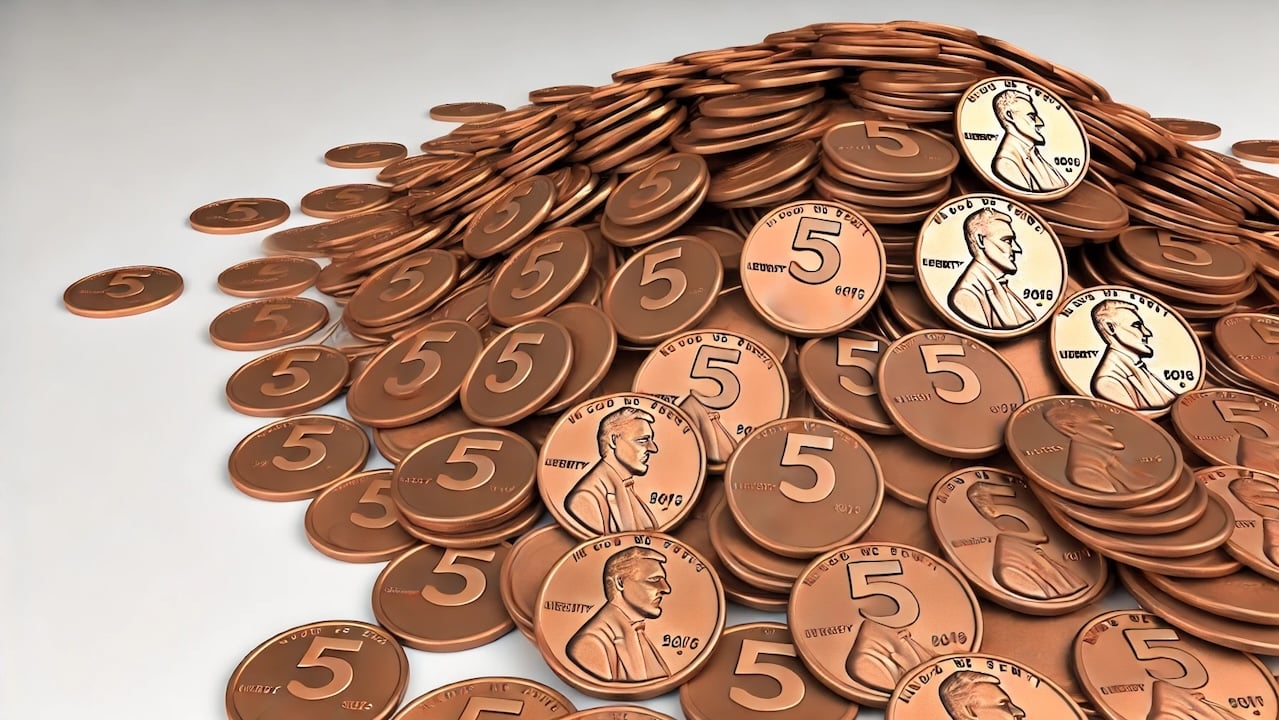from editorji
A Looming Port Strike Could Fuel Inflation and Cause Layoffs, Experts Say
Tens of thousands of dockworkers are set to strike as soon as Oct. 1.
by Max Zahn
ABC News
 Tens of thousands of dockworkers are set to strike as soon as Oct. 1, potentially snarling dozens of ports along the East and Gulf coasts with major implications for the U.S. economy.
Tens of thousands of dockworkers are set to strike as soon as Oct. 1, potentially snarling dozens of ports along the East and Gulf coasts with major implications for the U.S. economy.
A shutdown of the ports would cost the economy up to $4.5 billion each day, according to a report from JPMorgan senior equity analyst Brian Ossenbeck.
The East and Gulf Coast ports account for more than half of U.S. container imports, facilitating the transport of everything from toys to fresh fruit to nuclear reactors, Ossenbeck found.
A strike lasting only a handful of days would wreak little damage, but a prolonged work stoppage of several weeks or months could drive up prices for some goods and cause layoffs at manufacturers as raw materials dry up, experts said.
Chicago Fed President Goolsbee Wants to Declare Pennies Are Nickels
[Ed. Note: He also mentioned calling horses unicorns and embraced the concept of putting TBD on all new born birth certificates in the space for gender. How detached from reality is this idiot?]
by Mike Maharrey
Headline USA
 A recent comment by Chicago Federal Reserve President Austan Goolsbee gives you a glimpse into how Fed people think and helps to explain exactly why you’re paying more for everything.
A recent comment by Chicago Federal Reserve President Austan Goolsbee gives you a glimpse into how Fed people think and helps to explain exactly why you’re paying more for everything.
It’s almost as if inflating was hardwired into Fed members’ brains.
Goolsbee recently sat down with Illinois Treasurer Mike Frerichs during the National Association of State Treasurers conference in Chicago. In the course of the conversation, the subject of pennies came up.
There are a lot of people who think the U.S. Treasury should do away with the penny. This would make sense financially. It costs about 3 cents to mint the 1-cent coin.
“How stupid do you need to be to mint money at a loss?” Goolsbee asked.
Whither Inflation?
by Steven Desmyter
Forbes
![]() We were lucky enough to have the great David Zervos speaking to us at our MAIS conference in Oxford on Wednesday afternoon, just hours before the release of the Fed’s rate decision. There are few who understand the Fed reaction function so intimately or discuss it so eloquently. David suggested that he thought 50bps was a definite possibility, expounding on the reasons that might prompt this deeper cut. Later, over dinner, as we were listening to Tom Holland discussing great historical decisions, news of the 50bps cut dropped. And my phone and those of many others at the conference, looked something like this (posted on our #marketmemes Slack channel by my colleague William J. Ross).
We were lucky enough to have the great David Zervos speaking to us at our MAIS conference in Oxford on Wednesday afternoon, just hours before the release of the Fed’s rate decision. There are few who understand the Fed reaction function so intimately or discuss it so eloquently. David suggested that he thought 50bps was a definite possibility, expounding on the reasons that might prompt this deeper cut. Later, over dinner, as we were listening to Tom Holland discussing great historical decisions, news of the 50bps cut dropped. And my phone and those of many others at the conference, looked something like this (posted on our #marketmemes Slack channel by my colleague William J. Ross).
The Inflation Reduction Act’s Biggest Winners? Swing States.
Seven states got almost half of the manufacturing funds, but Democrats have done a poor job of claiming credit.
by Oliver Milman and Dharna Noor
Mother Jones
 The seven swing states that will decide the upcoming election have received nearly half of the torrent of clean energy manufacturing dollars unleashed by a landmark 2022 climate bill, a new analysis shows, amid stuttering Democratic efforts to translate new factory jobs into political support.
The seven swing states that will decide the upcoming election have received nearly half of the torrent of clean energy manufacturing dollars unleashed by a landmark 2022 climate bill, a new analysis shows, amid stuttering Democratic efforts to translate new factory jobs into political support.
Since the passage of clean energy incentives in the Inflation Reduction Act (IRA), a bill called the “most significant climate law in the history of mankind” by Joe Biden, nearly $150 billion has been announced for a flurry of new American facilities producing electric cars, batteries, and components for renewable energy.
Of this, $63 billion, or nearly half, will flow to just seven states—Arizona, Georgia, Michigan, Nevada, North Carolina, Pennsylvania, and Wisconsin—that form the battleground fought over by Kamala Harris and Donald Trump for November’s presidential election, bringing more than 50,000 new manufacturing jobs, according to an analysis carried out for the Guardian by Atlas Public Policy.
Expert Testimony: Mass Immigration Under Biden-Harris is Driving Up Rents for Americans
by John Binder
Breitbart.com
 The arrival of millions of foreign nationals, many of whom are illegal aliens, under President Joe Biden and Vice President Kamala Harris is helping to drive up rents for working- and middle-class Americans, an expert witness told Congress Wednesday.
The arrival of millions of foreign nationals, many of whom are illegal aliens, under President Joe Biden and Vice President Kamala Harris is helping to drive up rents for working- and middle-class Americans, an expert witness told Congress Wednesday.
Center for Immigration Studies Director of Research Steven Camarota told the House Oversight Committee that immigration levels are intrinsically linked to housing costs — particularly in recent years, when research shows that high immigration levels tend to increase rents for Americans.
“Census Bureau data shows that since January of 2021 the number of immigrant-headed households is up 2.4 million, with perhaps 1.4 million of this increase due to illegal immigration,” Camarota said:
Fed’s Favorite Inflation Data Friday Could Sway November Interest Rate Cut Odds
The August PCE report, out Friday, could clarify the Fed’s next rate move ahead of the Nov. 7 FOMC meeting.
by Piero Cingari
Benzinga.com
 Market expectations for the Federal Reserve’s next interest rate move could gain more clarity as early as this Friday, when a U.S. government agency releases a key inflation metric closely monitored by policymakers.
Market expectations for the Federal Reserve’s next interest rate move could gain more clarity as early as this Friday, when a U.S. government agency releases a key inflation metric closely monitored by policymakers.
The Personal Consumption Expenditure (PCE) price index report, scheduled for release on Friday, Sept. 27, at 8:30 a.m. ET, will provide critical insights into August’s inflation trends.
As the Fed’s preferred inflation gauge, the PCE is seen as a crucial indicator that could influence decisions on whether another rate cut will occur at the next Federal Open Market Committee (FOMC) meeting on Nov. 7.
Bank of America CFO Says Fed Seems To Be Winning Inflation Battle
by Reuters
Reuters.com
 Sept 25 (Reuters) – The Federal Reserve seems to be winning the inflation battle in the United States, Bank of America (BAC.N), opens new tab CFO Alastair Borthwick said, days after the central bank cut interest rates for the first time in more than four years.
Sept 25 (Reuters) – The Federal Reserve seems to be winning the inflation battle in the United States, Bank of America (BAC.N), opens new tab CFO Alastair Borthwick said, days after the central bank cut interest rates for the first time in more than four years.
“The Fed winning the inflation battle is important for the economy. It appears they are winning that battle,” Borthwick said at a conference on Wednesday.
The comments echo Fed Chair Jerome Powell’s view that the country’s bout with high inflation was over. The central bank last week reduced rates by 50 basis points as it shifts focus to sustaining lower unemployment.
‘The Cost of Kamala’: Donald Trump Blasts Skyrocketing Food Prices Hurting Americans
by Amy Furr
Breitbart.com
 Former President Donald Trump on Tuesday highlighted the inflation plaguing Americans under Vice President Kamala Harris’s (D) leadership.
Former President Donald Trump on Tuesday highlighted the inflation plaguing Americans under Vice President Kamala Harris’s (D) leadership.
In a social media post, Trump compared food prices during his presidency to those under President Joe Biden (D) and Harris, citing the cost of coffee, salmon, potatoes, milk, ham, chicken, cheese, and eggs.
The former president deemed it “The Cost of Kamala” and told social media users that coffee under Trump was $6.99 but now it is $9.99.
Grocery basics such as eggs were $1.99 under Trump but are currently $4.99, according to his post:
Based On Today’s Report, Powell Should Be Biting His Lip On Inflation
by David Haggith
GoldSeek
 The rise in inflation that I’ve said we could see by end of summer, continues to look increasingly likely to emerge soon and not like it is going to cut Chairman Powell’s rate cut a break. The US manufacturing report came in at a 15-month low, signaling the economy is not as rosy as indicated.
The rise in inflation that I’ve said we could see by end of summer, continues to look increasingly likely to emerge soon and not like it is going to cut Chairman Powell’s rate cut a break. The US manufacturing report came in at a 15-month low, signaling the economy is not as rosy as indicated.
PMIs disappointed in the early September print with both Services and Manufacturing falling.
Manufacturing actually fell way off, while services put in an inconsequential (so far) blip of a dip:
Fed Governor Bowman Explains Dissent On Rate Vote, Says She’s Worried About Inflation
Fed Governor Michelle Bowman said Tuesday she thought her colleagues should have taken a more measured approach to last week’s half percentage point interest rate reduction.
by Jeff Cox
CNBC.com
 Federal Reserve Governor Michelle Bowman said Tuesday she thought her colleagues should have taken a more measured approach to last week’s half percentage point interest rate cut as she worries that inflation could reignite.
Federal Reserve Governor Michelle Bowman said Tuesday she thought her colleagues should have taken a more measured approach to last week’s half percentage point interest rate cut as she worries that inflation could reignite.
Bowman was the lone dissenter from the Federal Open Market Committee’s decision to lower benchmark interest rates for the first time in more than four years. No governor had dissented from an interest rate decision since 2005.
In explaining her rationale, Bowman said the half percentage point, or 50 basis point, reduction posed a number of risks to the Fed’s twin goals of achieving low inflation and full employment.
